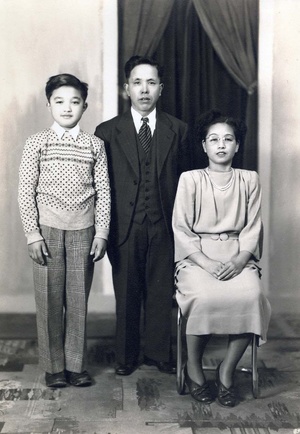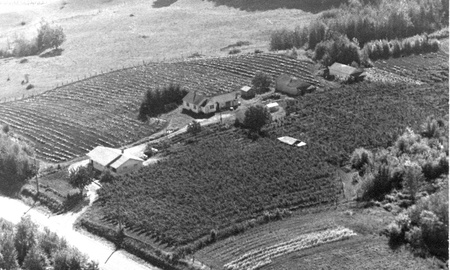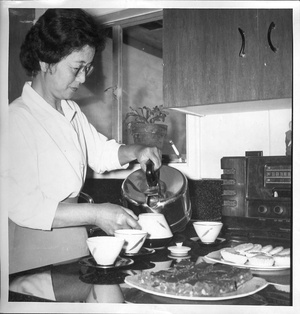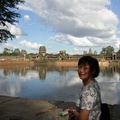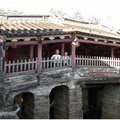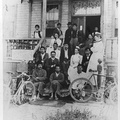In March 1956, my parents Shoji and Toki Fukawa became Canadian citizens. It was not a lightning-bolt decision, but a series of events that made them decide to apply for citizenship. Memory of the events following the forced removal in 1942, the internment, and the emotional turmoil associated with the dispersal of Japanese to other parts of Canada or to Japan were fading. Since the expiry of the War Measures Act and the granting of the franchise to Nikkei in 1949, they were now eligible to vote and free to move anywhere.
The following year a cheque arrived in the mail from the Bird Commission. It approved their claim for their farm and possessions and a settlement of $580 after a deduction of $26 for legal fees was issued to them. With this cheque and their meagre savings from seven years as labourers in apple orchards in Vernon, they returned to the Fraser Valley and made a down payment on a farm in Mt. Lehman. My parents began to feel that Canada was now beginning to accept them as Canadians.
This was such a contrast to how my father had felt in 1945 when the Canadian government sent a letter to all Japanese Canadian households in B.C. advocating its “policy of dispersal,” which was a diplomatic rephrasing of Ian Alistair Mackenzie’s provincial Liberal Party election slogan of “No Japs from the Rockies to the Seas!” In this letter, signed by T.B. Pickersgill, the newly appointed “Commissioner of Japanese Placement,” the federal Liberal government encouraged the Japanese to cooperate in a governmental “policy of dispersal” to rid the country of the Japanese “problem.”
The letter suggested that ethnic Japanese should cooperate in the government’s policy by either moving east of the Rockies or “repatriating” to Japan, an incorrect word because their policy included the deportation of Canadian citizens to a defeated Japan which was forced to accept them under the terms of surrender. The majority of Canadians in B.C. had long complained that Japanese “worked too hard,” and were too competitive as farmers and fishermen. To many whites, it was unbearable that members of a race that they judged as inferior should be more successful than themselves. The racist solution was to simply remove the entire race, ignoring such niceties as citizenship rights. They seemed unable to tolerate a society in which white people didn’t always win.
It must have been an emotional time for my parents when we had to leave the Pacific Coast for the B.C. interior in 1942, but I was too young to realize what was going on. However, in 1945, at seven and a half, I could see their distress at not knowing what to do. Shoji’s sister and brother-in-law lived in Alberta and they did not have to worry about moving, but they advised us not to make any hasty decisions. Japan and other countries were recovering from war—we should hang tight and not do anything we might later regret.
My father’s employer was satisfied with his work ethic and reliability. There was a small community of Japanese in the area, including others who had been uprooted from the coast so that we were not in isolation and could discuss the possibilities with them. The people my parents trusted most—my uncle and aunt and friends from Mission where father had lived for sixteen years—were mainly in Alberta.
The Canadian newspapers were not comforting. Communities all over the country were threatening harm to any Japanese who dared to set foot in their towns. They feared that incoming Japanese might upset the livelihoods of “real Canadians” by driving down rates of pay and prices of crops. Reading about this animosity, many Japanese decided to “repatriate,” thinking they would at least be with family. My father was one of them. He signed up but then heard about the much harder life faced by those who had gone back, beyond the worst of what we might expect anywhere in Canada, in a Japan devastated by war.
Fortunately for us, the Canadian government relented and allowed people to stay who had made earlier decisions to leave for Japan. With the advice of his sister and brother-in-law, my father also changed his mind. He knew there was little room for us in his ancestral home. He wondered if there might be opportunities in the former Japanese Empire, but realized that was unlikely. So, happily, after much worry and anxiety, he changed his mind and we stayed in Canada.
Previously, in 1944, Prime Minister McKenzie King admitted in the House of Commons that during the war, there had not been a single Japanese person in the country who had been charged with committing a disloyal act. However, in spite of this record of exemplary citizenship, the government extended the term of the War Measures Act for an additional five years.
After the uprooting and the seven and a half year interruption as a farm family, my parents were able to settle into their last home close to their home before the uprooting. Unfortunately, my mother’s illness, possibly brought on by the wartime stress, struck in the 1950s and turned out to be a mystery disease that baffled the doctors.
One doctor thought it was related to her gums and had the dentist remove all her teeth. This did not work and she was hospitalized off and on for nausea and further tests and if it had not been for the hospital insurance that was instituted at that time, my parents would have lost the farm. It turned out that the specialists in Vancouver, where she was a patient, discovered that her kidney stones were due to the elevated calcium level in her blood. This was caused by a tumour in her parathyroid gland which could not be found in her throat where it should have been. Her condition resulted in the secretion of calcium from her bones into her blood. Doctors have told me she survived her poisonously high serum calcium levels beyond normal expectations and that they had not seen anyone with such a high level of calcium in their blood. She died in 1973, after decades of suffering due to weakening bones.
As the only child, during my mother’s lengthy stays in hospitals and in bed at home, I had to learn to cook and clean and do the laundry. Cooking was not a hardship for me as I love to eat and have always enjoyed food preparation.
In the experience of my parents’ generation, such recurring medical care could lead to bankruptcy. So it was a surprise to hear my father say in sincere appreciation of socialized medicine adopted at that time that Canada was “a good country.” Both died before the redress settlement in 1988 and did not witness the acknowledgement or the apology. It was hospital insurance established in 1961 that made him appreciate a nation that had earlier taken away his first farm, his belongings, and his freedom because of his race but which now treated him as an equal and provided his family with the hospital care we needed. He felt equally valued and this convinced him and my mother to become naturalized Canadian citizens. In 1963, my parents returned to their birthplace for the first time since they left Japan as newlyweds in 1935. They traveled as Canadians using Canadian passports.
My parents’ experience led me to understand why, much later in 2004, the CBC’s Greatest Canadians poll chose Tommy Douglas as the greatest Canadian. He had brought security and the comfort of a socialized medical care system to the nation—a benefit that you don’t forget, once your family needs and receives it.
In appreciation of the CCF, as the only Canadian political party to support the cause of Japanese Canadians during our most difficult years and also the one that brought us socialized medicine, my father became a staunch supporter of that party. It had been the Liberals and the Conservatives who had used Jap-baiting as their main platform in B.C., so I chose to follow his example and have been an active volunteer for the CCF-NDP since 1971 when my mother, my wife, and I returned to B.C. after graduate school. I am proud of having been a canvasser for Tommy Douglas when he ran in Nanaimo. I have also been active with the NDP in Burnaby where Tommy had run before going to Nanaimo. In my retirement, I have volunteered for the NDP at elections at all three levels of government and served on city committees for the civic NDP.
*This article was originally published in Nikkei Images, Spring 2016, Volume 21, No. 1.
© 2016 Stan Fukawa


